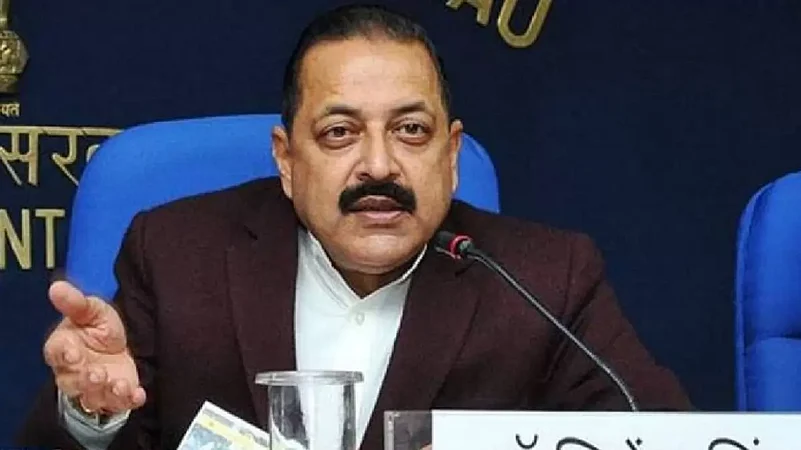The administrative reforms done in the last nine years of the Modi government were aimed at bringing socio-economic transformation and empowering citizens, Union Minister Jitendra Singh said on Friday.
Delivering the inaugural address at a webinar on administrative reforms (2014-2023) here, he also said large-scale use of technology and the "integration approach" were the twin pillars of the "revolutionary" governance reforms carried out under the leadership of Prime Minister Narendra Modi.
Singh, the minister of state for personnel, said as the country moves ahead towards building a self-reliant India, it is imperative that "we focus on empowering our citizens and reach the last person at the end of the line".
Prime Minister Modi exhorts that "empowering our citizens means ensuring that every individual in our country has access to basic necessities such as healthcare, education, and employment", he said.
"It also means creating an environment where every citizen has the opportunity to realise their full potential. The fulfilment of this objective requires working towards 'Vision 2047', which includes major parts of technological enhancements and drawing optimum solutions," Singh said.
On administrative reforms, he said ever since Narendra Modi assumed office in 2014, he gave the mantra of "minimum government- maximum governance", which means a government acts as a facilitator and not as an intimidator.
"When we talk of a government like this it means increased transparency, increased accountability and most of all increased citizen participation," Singh said.
Talking about transparency and accountability in governance, he said the benchmark for a clean and effective government is the robust grievance redressal mechanism.
Singh listed out several ideas such as abolishing the century-old colonial practice of attestation of documents by a gazetted officer and replacing it by self-attestation, doing away with interview for Group-B (non-gazetted) and Group-C posts in the central government since 2016, three-month central stint for fresh IAS officers as assistant secretary, structural reforms in PM awards for excellence in public administration and abolition of around 1,450 government rules.
Referring to Mission Karmayogi's main mantra of moving from "rule to role", he said civil servants must train themselves for new and challenging assignments as most of the flagship schemes of the government are now largely based on innovative technology.
Singh complimented the team of the Department of Adminsitrative Reforms and Public Grievances (DARPG) for the successful organising of the Swachhata 1.0 and 2.0 campaigns.
"For the first time, the realisation dawned in society that 'Swachhata' could also fetch you money. The 'Swachhata' campaign 2.0 was conducted in over one lakh office sites, 89.85 lakh square feet of space was freed and Rs 370.83 crores revenue earned from disposal of office scrap, including the electronic scrap," he said.
Talking about digital transformation, the minister said e-office version 7.0 has been adopted in all 75 ministries or departments of the Central Secretariat.
Singh also mentioned that the Prime Minister Modi is a man of several innovations in governance and the 'Chintan Shivir' laid down a futuristic model of governance representing far-reaching administrative reforms in the "amrit kaal" period.
The 'Chintan Shivir' represents an administrative best practice where desiloisation and free exchange of views have been possible, he said.
The minister urged all ministries to conduct 'Chintan Shivirs' to transform institutional dynamics suited to 21st century governance models.
-With PTI Input


























